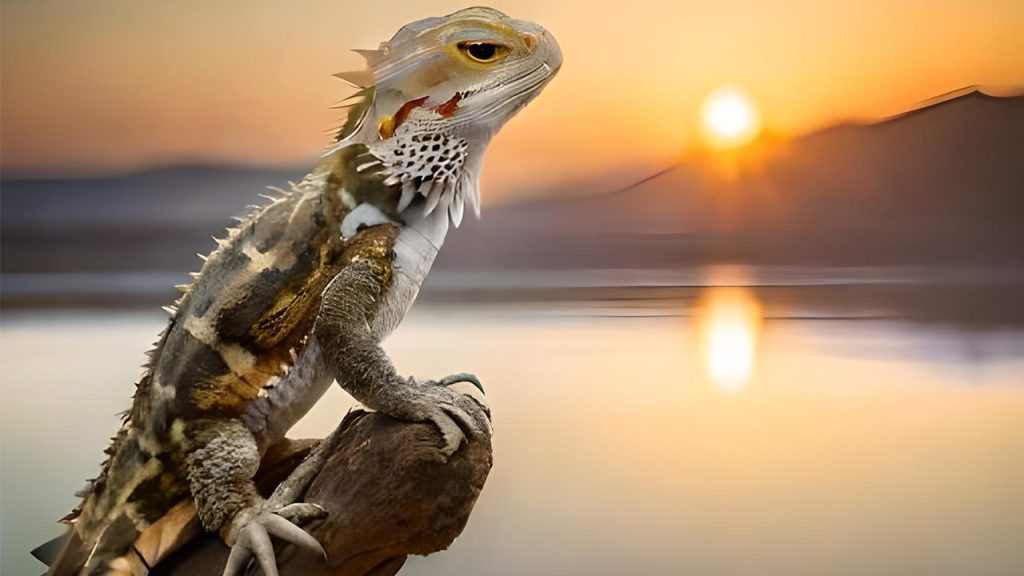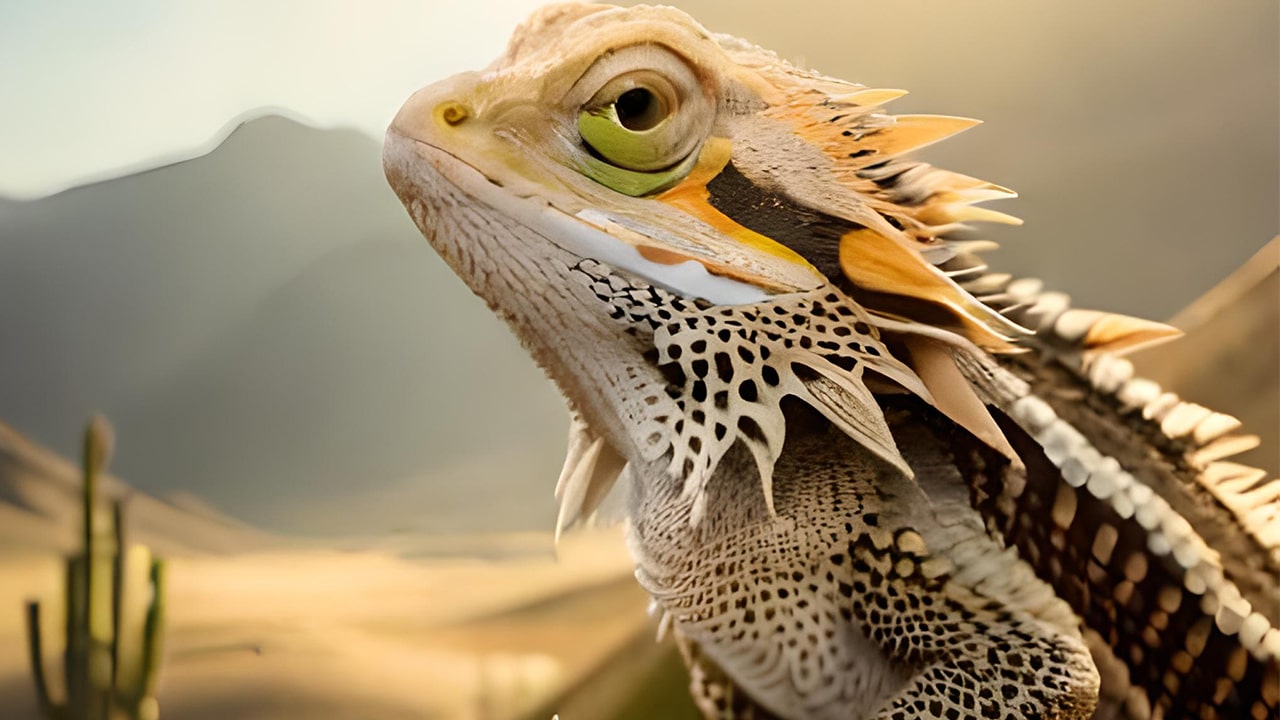Bearded dragons are fascinating reptiles known for their unique appearance and docile nature. As popular pets, many people wonder about the emotional connection between these creatures and their owners.
Do bearded dragons experience feelings of attachment and miss their human companions? In this article, we will delve into the intriguing world of bearded dragons and explore their capacity for emotional connection.
Owning a bearded dragon can be a rewarding experience, but it’s natural to wonder if these reptiles can form emotional connections with their human caretakers. While bearded dragons may not exhibit emotions in the same way humans do, they possess unique behaviors that suggest they can develop bonds and recognize their owners.
Contents
- 1 Understanding Bearded Dragons
- 2 Social Behavior of Bearded Dragons
- 3 Can Bearded Dragons Form Emotional Bonds?
- 4 Signs of Recognition and Familiarity
- 5 The Impact of Owner Interaction
- 6 Bearded Dragon Stress and Well-being
- 7 Creating a Positive Environment
- 8 Do Bearded Dragons Miss Their Owners?
- 9 Factors Influencing Emotional Bonds
- 10 Promoting Bonding with Your Bearded Dragon
- 11 Conclusion
- 12 FAQs
Understanding Bearded Dragons
Before diving into the topic of emotional connection, let’s first understand the nature of bearded dragons. Bearded dragons, scientifically known as Pogona, are native to Australia and belong to the reptile family. They have distinctive appearances, characterized by their spiky throat pouches, or “beards,” and are generally gentle and docile creatures.
Social Behavior of Bearded Dragons
In their natural habitat, bearded dragons are solitary creatures, but they do exhibit social behaviors to some extent. While they don’t rely on social interactions as heavily as mammals or social reptiles, they can still recognize and respond to familiar individuals.
Can Bearded Dragons Form Emotional Bonds?
Bearded dragons have the capacity to form connections with their owners, although these bonds may differ from the emotional connections humans experience. As reptiles, their behavior is primarily driven by instinct, but they can show signs of recognition and familiarity with their human caretakers.
Signs of Recognition and Familiarity
Bearded dragons can display signs of recognizing their owners through various cues. They may become more alert and active when their owner approaches or shows affection towards them. Some bearded dragons even respond positively to their owner’s voice or presence, indicating a level of familiarity.
The Impact of Owner Interaction
Regular interaction with their owners can positively influence a bearded dragon’s behavior and overall well-being. By providing consistent care, handling, and stimulation, owners can strengthen the bond and trust between them and their bearded dragon.
Bearded Dragon Stress and Well-being
Bearded dragons can experience stress, which may affect their overall well-being and behavior. Changes in their environment or routine, such as prolonged separation from their owners, can cause distress. It’s important for owners to be mindful of their bearded dragon’s stress levels and provide a comfortable and secure living environment.
Creating a Positive Environment
To promote a positive environment for your bearded dragon, it’s crucial to ensure their habitat meets their specific needs. Providing a spacious enclosure with appropriate temperature, lighting, and hiding spots will contribute to their physical and mental well-being. Additionally, offering a balanced diet and engaging in regular playtime or enrichment activities will help keep them stimulated and content.
Do Bearded Dragons Miss Their Owners?
While it’s challenging to definitively determine if bearded dragons experience a sense of missing their owners, they do exhibit behaviors that suggest attachment and recognition. They may show signs of anticipation or excitement when their owner returns after a period of absence. However, it’s important to note that their reactions may also be driven by instinct and a response to familiar stimuli.
Factors Influencing Emotional Bonds
Several factors can influence the strength of the emotional bond between a bearded dragon and its owner. The frequency and quality of interaction, the consistency of care, and the provision of a comfortable and enriching environment all play a role in fostering a stronger connection.
Promoting Bonding with Your Bearded Dragon
If you want to strengthen your bond with your bearded dragon, consider the following tips:
- Spend regular, quality time together.
- Handle your bearded dragon gently and with care.
- Engage in interactive play and provide enrichment activities.
- Offer a varied and nutritious diet.
- Create a comfortable and stimulating habitat.

Conclusion
While bearded dragons may not experience emotions in the same way humans do, they can develop connections and recognize their owners. By providing proper care, attention, and a positive environment, you can enhance the bond between you and your bearded dragon, leading to a mutually enriching relationship.
FAQs
Q1: Can bearded dragons show affection towards their owners? A1: While bearded dragons may not display affection in the same way mammals do, they can show signs of recognition, familiarity, and respond positively to their owner’s presence.
Q2: Do bearded dragons enjoy being handled? A2: Some bearded dragons enjoy being handled and may become more comfortable with regular interaction and gentle handling. However, each individual bearded dragon has its own temperament and preferences.
Q3: How can I tell if my bearded dragon recognizes me? A3: Bearded dragons may exhibit signs of recognition by becoming more alert, active, or responsive when they see or hear their owner. They may also display signs of anticipation when their owner returns after a period of absence.
Q4: Can bearded dragons become stressed when separated from their owners? A4: Bearded dragons can experience stress when separated from their owners for extended periods. It’s important to provide a secure and comfortable environment and ensure they receive proper care even when you’re away.
Q5: How can I create a stimulating environment for my bearded dragon? A5: You can create a stimulating environment for your bearded dragon by providing a spacious enclosure with hiding spots, appropriate temperature and lighting, varied diet, and engaging in regular playtime and enrichment activities.


